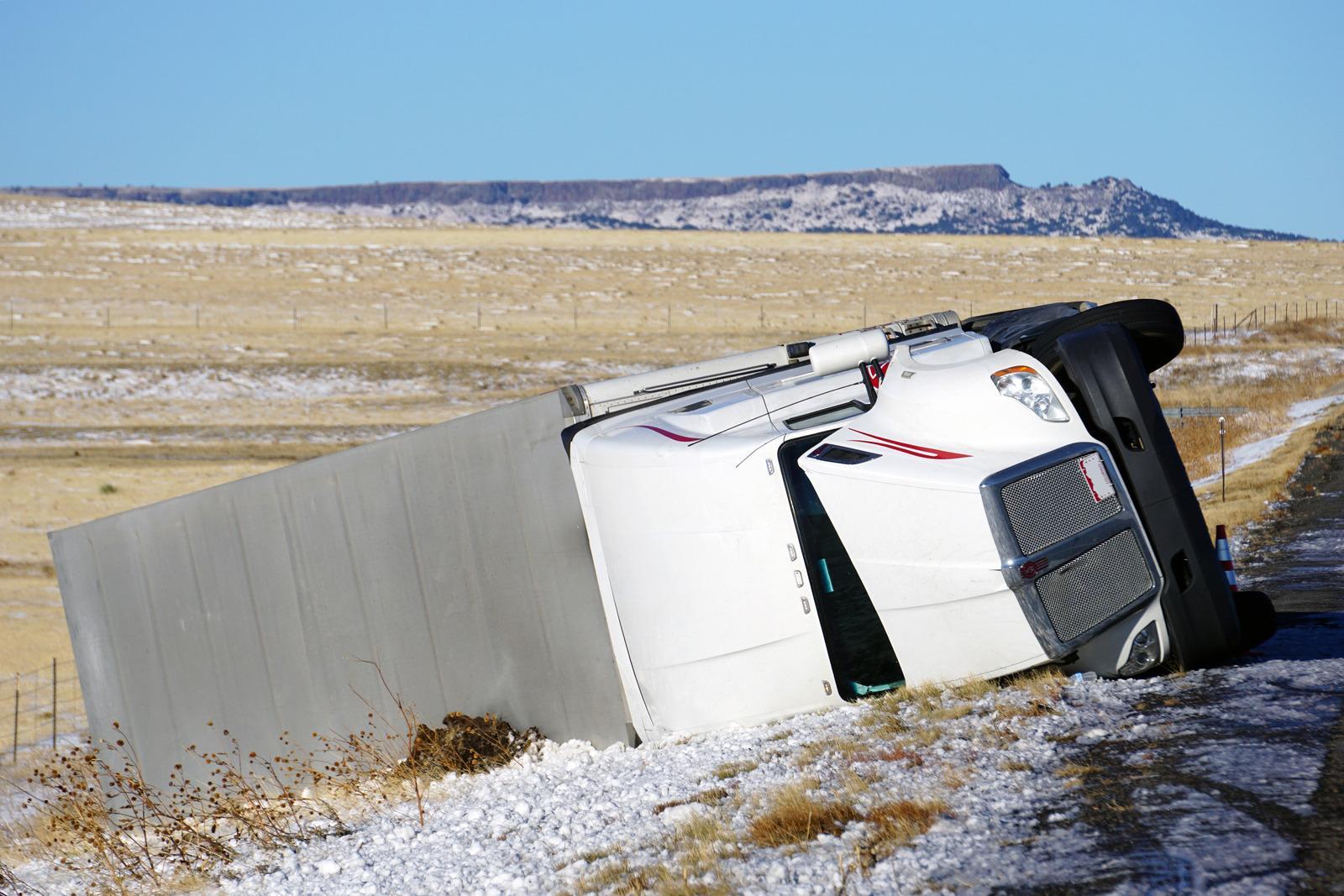Truck accident claims are inherently complex. Unlike typical passenger vehicle collisions, truck accidents usually involve multiple parties, intricate federal and state regulatory frameworks, and extensive insurance coverage policies. Identifying the liable parties in a truck accident case is a critical step that determines the legal strategy, scope, and potential value of a claim for financial compensation.
Truck Driver Liability
Direct Negligence of the Driver
The most obvious potential defendant in a truck accident is the truck driver. Drivers can be held liable for their negligent, reckless, or intentional conduct behind the wheel. Common examples include:
- Distracted driving (e.g., texting or using in-cab devices)
- Fatigued driving, especially in violation of Federal Motor Carrier Safety Administration (FMCSA) hours-of-service (HOS) regulations
- Impaired driving due to alcohol, drugs, or prescription medications
- Speeding, tailgating, or aggressive maneuvers
- Improper lane changes or failure to yield
In these situations, liability is typically rooted in tort law principles of negligence. The plaintiff must prove the driver breached a duty of care, that the breach caused the accident, and that the accident led to measurable damages.
Trucking Company Liability
Vicarious Liability (Respondeat Superior)
Under the doctrine of respondeat superior, a trucking company can be held vicariously liable for the actions of its employee (i.e., the truck driver) if the negligent conduct occurred within the scope of employment. This legal principle is significant because trucking companies typically have far greater insurance coverage and financial resources than individual drivers.
Direct Liability for Independent Negligence
Beyond vicarious liability, trucking companies may be held directly liable for their negligent conduct. Examples include:
- Negligent hiring, such as employing drivers with a history of DUIs or traffic violations
- Negligent training, especially when the company fails to adequately instruct drivers on FMCSA safety regulations
- Failure to supervise, such as ignoring evidence of driver fatigue or logbook falsification
- Forcing drivers to violate HOS rules through unrealistic delivery schedules or performance-based incentives
- Failure to maintain fleet vehicles, leading to brake failures, tire blowouts, or steering malfunctions
Establishing this form of liability may require subpoenaing internal company records, maintenance logs, electronic logging device (ELD) data, and driver qualification files.
Cargo Loading Companies
Improperly loaded cargo is a common factor in rollover accidents, jackknifes, and loss-of-control incidents. Liability may extend to third-party cargo loaders, especially in interstate shipping arrangements where loading and securing cargo is subcontracted to specialized vendors.
The key legal standard here is the duty to secure cargo under FMCSA regulations, which cargo loaders must follow when weight distribution, securement methods, or hazardous materials are involved.
When Is a Cargo Loader Liable?
- Overloaded trucks exceeding the Gross Vehicle Weight Rating (GVWR)
- Unsecured or shifting loads
- Improperly labeled or stored hazardous materials
- Use of defective or inadequate tie-down equipment
Skilled truck accident lawyers can investigate weigh station records, shipping manifests, and inspection reports to determine whether cargo issues contributed to the truck crash.
Truck and Trailer Manufacturers
Product Liability for Defective Components
Sometimes, the root cause of a truck accident lies in a design defect, manufacturing flaw, or failure to warn regarding the truck or trailer itself. In such cases, the manufacturer of the truck, trailer, or specific component (e.g., braking system, tires, steering mechanisms) may be held liable under product liability laws.
There are three main types of product liability claims:
- Design defects: Inherent flaws in the blueprint (e.g., a top-heavy trailer prone to rollovers)
- Manufacturing defects: Errors during assembly or production (e.g., defective brake pads)
- Failure to warn: Inadequate labeling or warnings about safe operation or maintenance
Manufacturers may be held strictly liable, meaning fault need not be proven—only that the defect existed, the product was used as intended, and the defect caused injury.
Truck Repair and Maintenance Providers
If the trucking company outsourced routine or emergency maintenance and repair services, those vendors may be held liable for negligent maintenance or failure to identify a dangerous defect. Common maintenance-related failures that lead to accidents include:
- Inadequate brake replacement
- Improper tire inflation or failure to detect wear
- Failure to service suspension or steering components
- Not securing wheel assemblies
Service logs, invoices, and expert mechanical testimony are critical to proving maintenance-related liability.
Trucking Brokers and Logistics Companies
In some trucking arrangements, a freight broker or logistics firm acts as a middleman between the shipper and the motor carrier. Courts have increasingly allowed plaintiffs to sue brokers for negligent selection of carriers, especially when they fail to vet whether the carrier had:
- A valid FMCSA registration
- Adequate safety scores
- Insurance coverage
- A history of safety violations
These cases usually turn on whether the broker had a non-delegable duty of care or whether their conduct rises to the level of negligent entrustment.
Government Entities and Road Designers
Though less common, government agencies or contractors may be partially liable in truck accident cases involving:
- Poor road design (e.g., inadequate signage, sharp curves, dangerous intersections)
- Inadequate maintenance (e.g., potholes, uncleared debris)
- Malfunctioning traffic control devices
Claims against government bodies in Wisconsin are subject to specific notice requirements and damage caps under Wis. Stat. § 893.80. Moreover, establishing liability requires expert analysis of traffic engineering and compliance with highway design standards.
Other Potentially Liable Parties in Truck Accidents
Vehicle Leasing Companies
If the truck was leased under a commercial arrangement, liability may extend to the lessor, especially if they failed to:
- Ensure the lessee had valid operating authority
- Confirm maintenance schedules were followed
- Enforce contract provisions requiring regulatory compliance
Employers of Non-Truck Drivers
In cases where another non-commercial vehicle contributed to the accident and that driver was on the job, their employer may be held liable under vicarious liability principles.
Injured Victims Should Seek Legal Representation
Truck accident cases are a battle of resources, legal skills, and timing. Trucking companies and their insurers will act quickly to control the narrative, obtain favorable evidence, and suppress damaging records. Victims should get legal representation as soon as possible to level the playing field.
An experienced Madison truck accident attorney will:
- Send spoliation letters to preserve evidence
- Issue subpoenas to reluctant third parties
- Review FMCSA databases and carrier histories
- Coordinate with forensic experts
- Uncover overlapping layers of insurance
- File claims within the applicable statutes of limitation
By working with seasoned truck accidents lawyers Madison, injured victims can ensure no negligent party escapes liability and that they can fight for the maximum compensation they may be entitled to under the law.
Image Source: Canva







